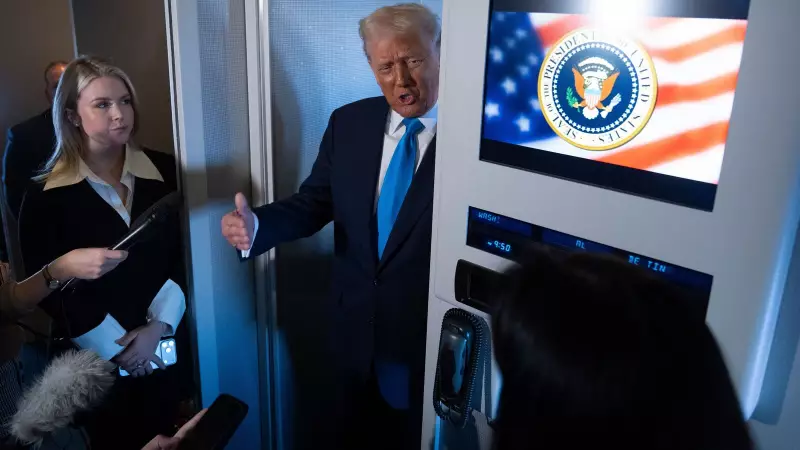
In a characteristically ambiguous statement that has set political circles abuzz, former President Donald Trump has acknowledged the constitutional barriers preventing him from seeking a third term, while simultaneously keeping the door open for future political maneuvers.
The Constitutional Reality Check
During recent public appearances, Trump explicitly recognized what legal experts have long maintained: the 22nd Amendment of the US Constitution clearly prohibits any individual from being elected to the presidency more than twice. "It's pretty clear that you can't," Trump stated when questioned about the possibility of a third term, demonstrating rare deference to constitutional limitations.
The 2028 Hint That's Making Headlines
Despite this constitutional acknowledgment, the former president couldn't resist teasing his supporters with prospects for 2028. In his signature cryptic style, Trump remarked "We'll see what happens" when the topic of the next election cycle emerged, leaving ample room for interpretation and speculation among his political base.
Political Strategists Weigh In
Political analysts suggest this calculated ambiguity serves multiple purposes for Trump's political strategy:
- Maintaining media attention and relevance beyond the current election cycle
- Keeping potential Republican rivals uncertain about his long-term plans
- Sustaining enthusiasm among his core supporters
- Preserving his influence over the direction of the Republican Party
The Historical Context of Third-Term Discussions
The conversation around presidential term limits has historical significance in American politics. Before the 22nd Amendment's ratification in 1951, Franklin D. Roosevelt was elected to four terms, prompting the constitutional clarification that now prevents similar scenarios.
Trump's latest comments demonstrate his continued mastery of political theater, simultaneously acknowledging legal realities while keeping his political options and public profile firmly in the spotlight.





